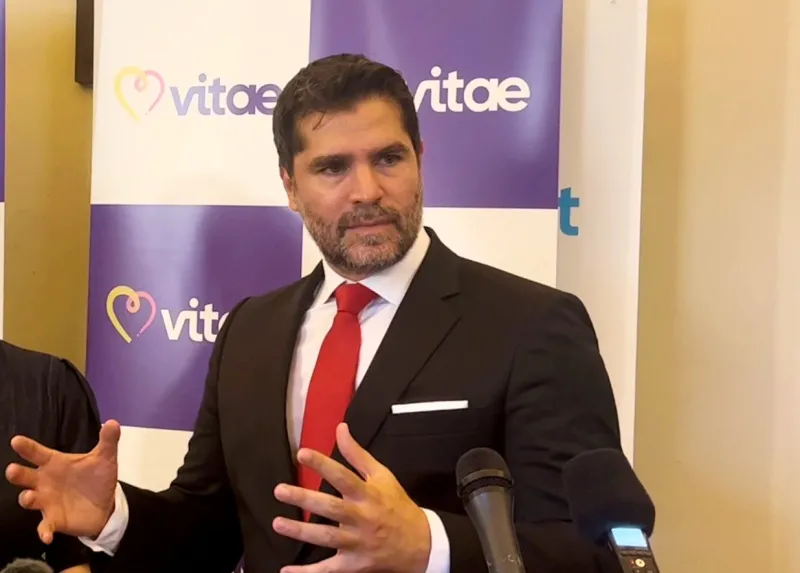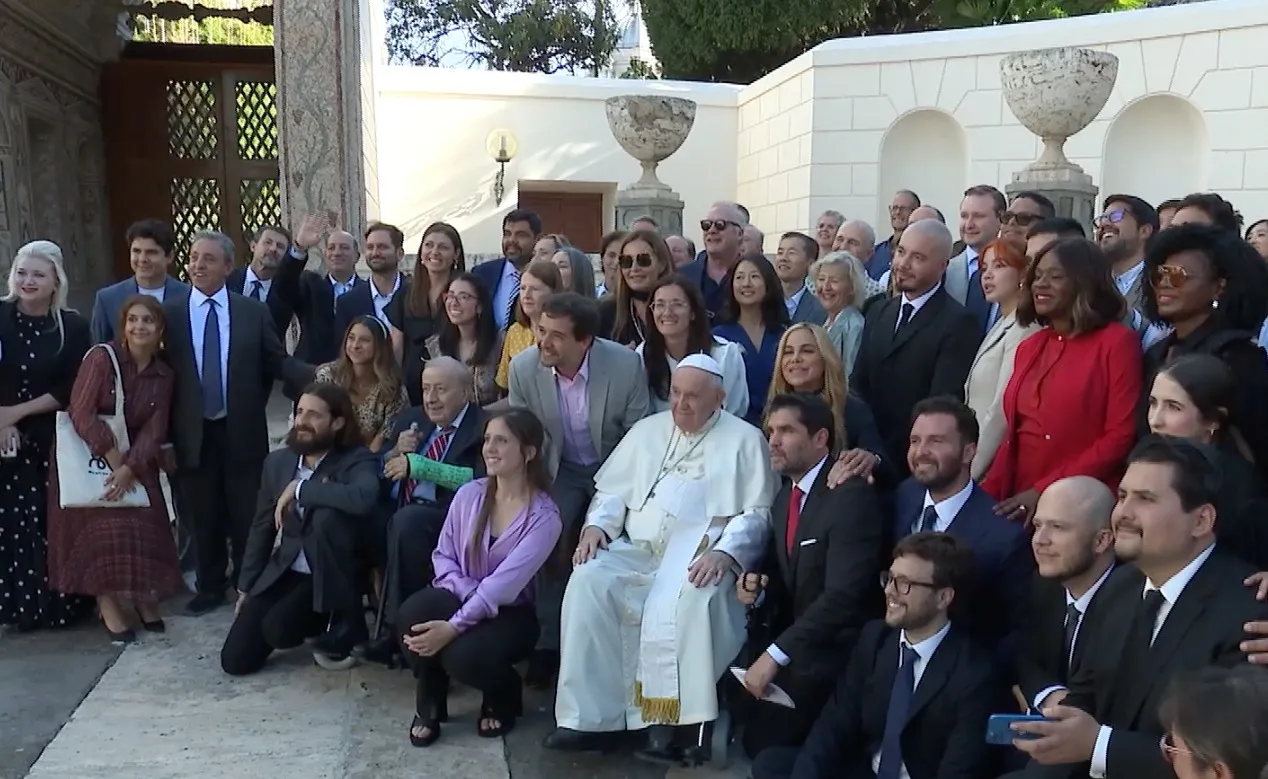
Rome Newsroom, Sep 7, 2022 / 07:29 am (CNA).
Catholic actor Eduardo Verástegui has launched a national campaign in Mexico to combat human trafficking.
Inspired by his latest film, “Sound of Freedom,” which hits Amazon Prime on Sept. 8, Verástegui told CNA that the fight against human trafficking is “my number one mission right now.”
The producer and actor is currently touring 32 states in Mexico with his organization, Movimiento Viva Mexico, in an effort to partner with local government leaders, educators, law enforcement, and foundations to prevent child exploitation.
In an interview in the Vatican Gardens shortly after the actor met with Pope Francis, Verástegui said that it’s his goal to start a “movement to end child trafficking.”
“I’m convinced that if we all work together, we will end this horrible reality because God’s children are not for sale,” he said.
Verástegui served as the producer for “Sound of Freedom,” a movie starring Jim Caviezel, who is best known for playing Jesus in The Passion of the Christ.
Directed by Alejandro Monteverde and shot in Cartagena, Colombia, “Sound of Freedom” depicts the rescue of 127 sexually abused children in South America. It is based on the true story of former CIA agent Tim Ballard, who founded Operation Underground Railroad to combat human trafficking.
Working on the film helped Verástegui realize the magnitude of the child trafficking issue in Mexico, which has been ranked second in the world for underage prostitution, according to the Scelles Foundation.
Vatican summit
Verástegui spoke about his work to combat human trafficking at a Vatican summit, where actors, directors, and musical artists came together to discuss how the arts and entertainment can inspire hope.
Marcus Mumford, Patricia Heaton, David Oyelowo, J. Balvin, Alessia Cara, Jonathan Roumie, Isaac Chung, and a dozen others attended the summit organized by Vitae Global. Oscar winner Denzel Washington was also registered to attend, but could not make it due to a last-minute change in his filming schedule.
Pope Francis spent two hours in a private conversation with the entertainment artists in the Vatican Gardens on Sept. 1, encouraging them to be “preachers of beauty.”

Alexander Acha, a Latin Grammy-winning singer-songwriter from Mexico, told CNA that Pope Francis encouraged the summit attendees to pursue truth and contemplation in their creative endeavors.
The pope said art “opens doors, touches hearts, and helps us to walk forward.”
For Verástegui, who had met with the pope before starting work on the Sound of Freedom to ask for a papal blessing of the project, the meeting with Pope Francis before the film’s release was particularly special.
“It was a beautiful moment to have the chance to talk with him … here at the Vatican with so many talented people.”
“My faith is the most important part of my life. It’s the center of my life. Everything that I do is inspired by my faith,” the actor said.
Pro-life work
Verástegui first came to prominence for US audiences for his starring role in the pro-life film “Bella” and has continued to be an active voice in the pro-life movement.
He believes that “many lives will be saved” by the recent Supreme Court decision to overturn Roe v. Wade.
“I’m very happy that through the work of so many people, the prayers of so many people, finally, we saw a big result,” Verástegui said.
“This is just the beginning. We haven’t finished the work yet because now we have to go state by state, and we’re moving forward.”
“We have to fight every day … because we love God and we love the most beautiful gift that God gave us, which is life,” he said.
If you value the news and views Catholic World Report provides, please consider donating to support our efforts. Your contribution will help us continue to make CWR available to all readers worldwide for free, without a subscription. Thank you for your generosity!
Click here for more information on donating to CWR. Click here to sign up for our newsletter.






It’s so frustrating that this film keeps being pushed back! I’ve wanted to see this film for two years now! Is there some reason this film keeps being pushed back? I know there’s been some controversy about Tim Ballard’s organization and about Jim Caviezel due to his belief the children are being trafficked for adrenochroming but this story is still important!